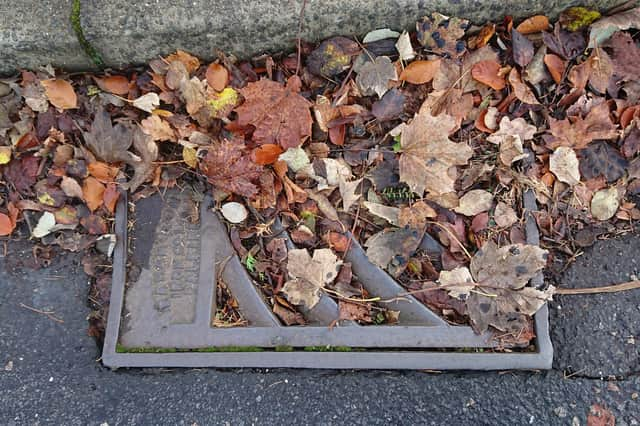Tech needed to improve gully cleaning in Falkirk to prevent floods


Just one-third of the usual number of gullies – or drain grates – were cleared by last year, due to high staff absences, budget cuts and the impact of Covid-19.
Now, as the effects of climate change are being felt, a pilot project is urgently looking at how new technology can help in the battle to keep them clear.
Advertisement
Hide AdAdvertisement
Hide AdIn 2018/19, a total of 21,812 gullies were cleaned; that almost halved in 2019/20 to 12,430; while in 2020/21 just 7,573 were cleaned.
Members of Falkirk Council’s Scrutiny committee heard on Thursday heard high staff absences had been a big part of the problem – even before time off due to Covid was taken into account.
It also highlighted that in the early days of lockdown, the service had only dealt with emergencies and major roads it’s vital to keep open.
The service has also seen a massive reduction in its budget since 2015/16, when it was more than £600,000.
Advertisement
Hide AdAdvertisement
Hide AdNow the budget is nearly half that amount, with the prospect of more cuts to come, the report warned.
Roads manager Gary Neill said that finding ways to make the service more efficient was more vital than ever as climate change takes effect.
He told councillors the year 2019/20 was the fifth wettest on record, according to the Met Office – and that’s a trend that is set to continue.
“Summers are going to be drier but when it does rain it will be more intense and winters will be wetter too,” he explained.
Advertisement
Hide AdAdvertisement
Hide Ad“We experienced that relatively recently, when we had really intense and sustained rainfall, which caused flash flooding across our network.”
Drier summers will also mean that the ground will take longer to absorb water, another factor in flash floods.
Members heard the service is now starting to use technology to make it more efficient and target problem areas.
Mr Neill explained that staff – across roads, grounds maintenance and street lighting – are now using tablets to streamline the process.
Advertisement
Hide AdAdvertisement
Hide AdHe said: “Previously, whenever a member of the public had put an enquiry into our system, it would come into an inspector who would print a bit of paper off, go and inspect it, write an action, come back, print an instruction out, give it to an operative for a repair, he would fix it and then he’d come back to the office and it would be written off in the system.”
Now, he said, reports came in directly to an inspector’s tablet and were then sent out quickly via another tablet – with no paperwork and no need to go to an office.
But the new technology is also crucial in recording ‘hot spots’ that need more frequent attention as well as any defects.
“We’re using data to build a picture of where we are now,” said Mr Neil.
Advertisement
Hide AdAdvertisement
Hide AdWork is also being done to address the high absence rate and workers are being trained to be more flexible so they can go where they are most needed.
Members of the Scrutiny Committee – who had called for the report – welcomed the work that is underway.